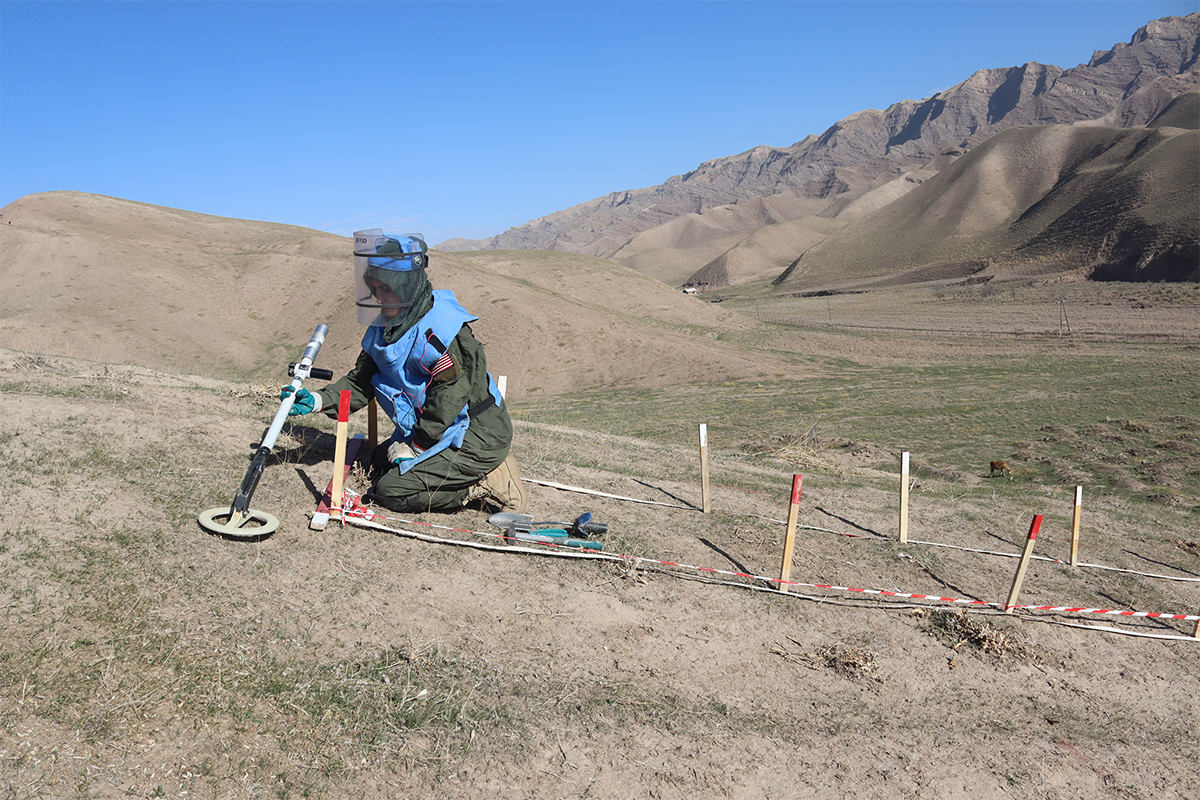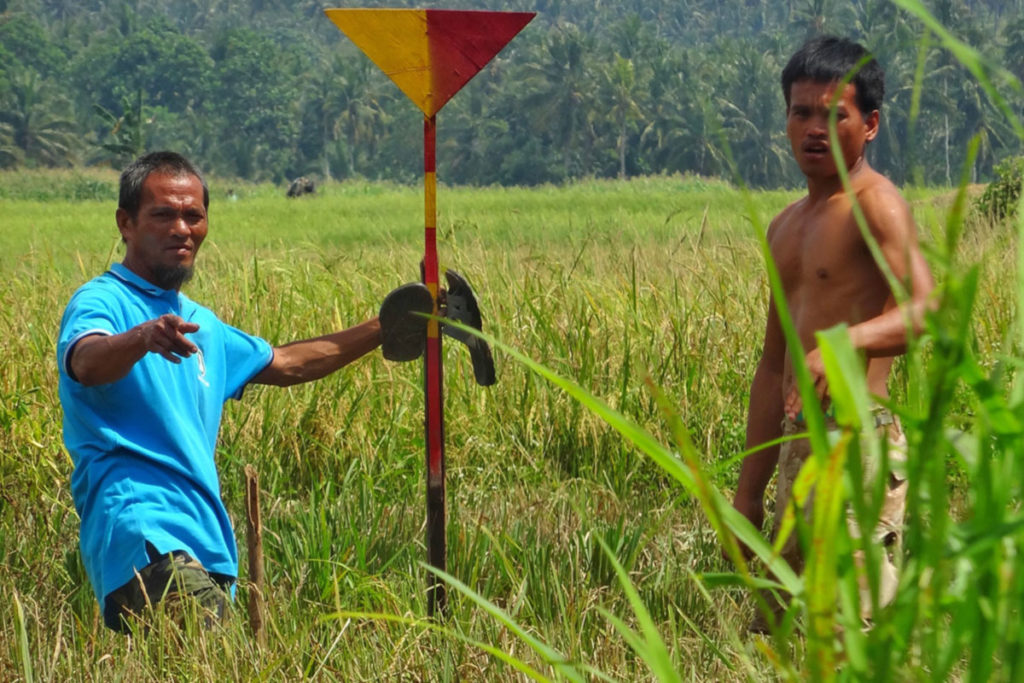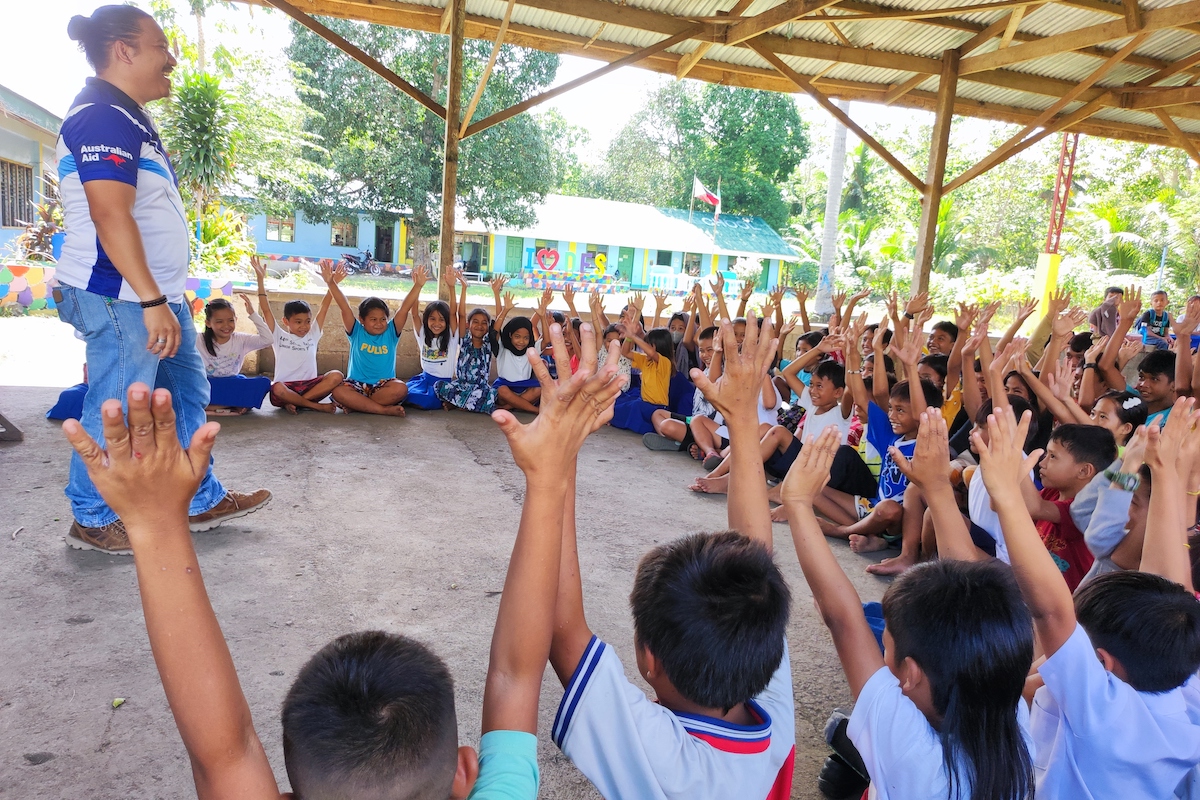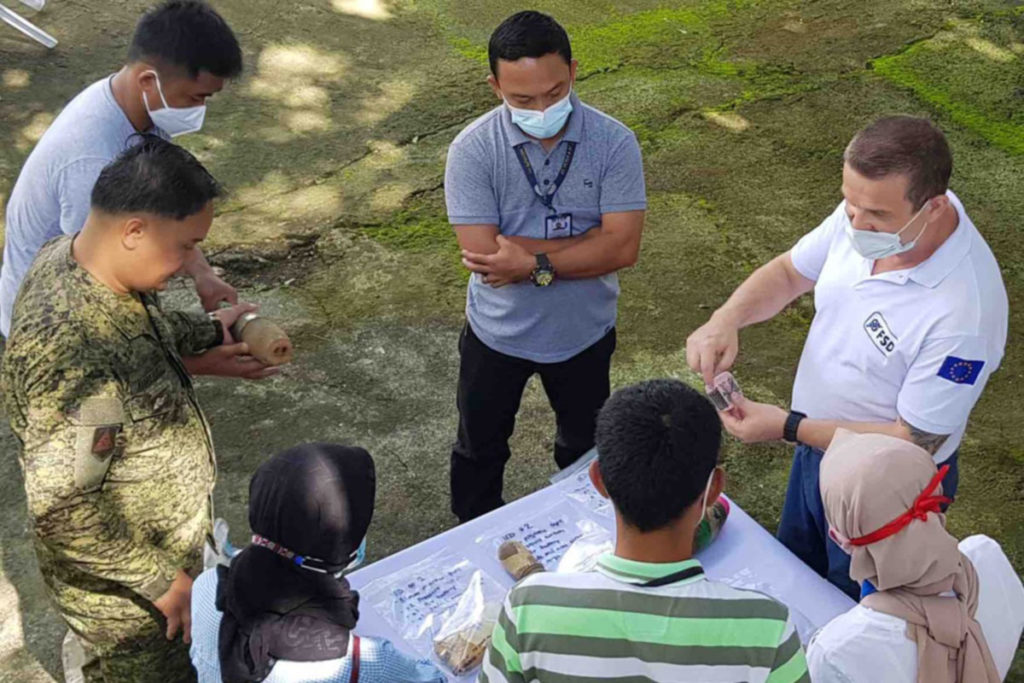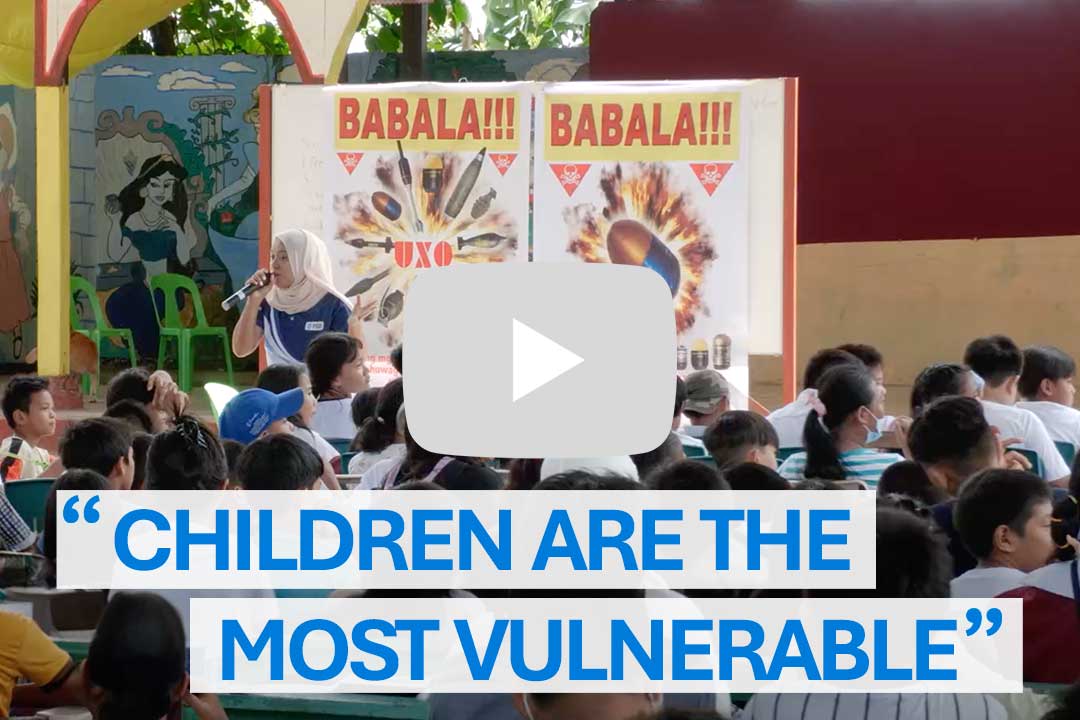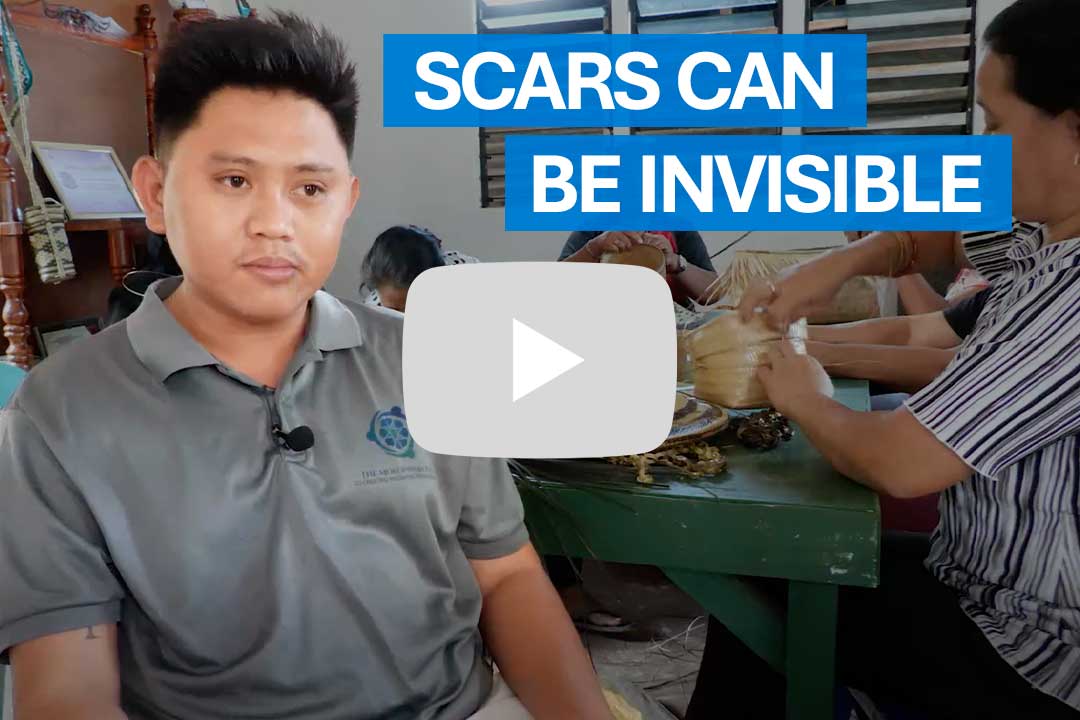Philippines
By addressing the threat of explosive ordnance through clearance, risk education, and local partnerships, FSD fosters safer communities, strengthens resilience, and supports long-term stability in conflict-affected areas of Mindanao.
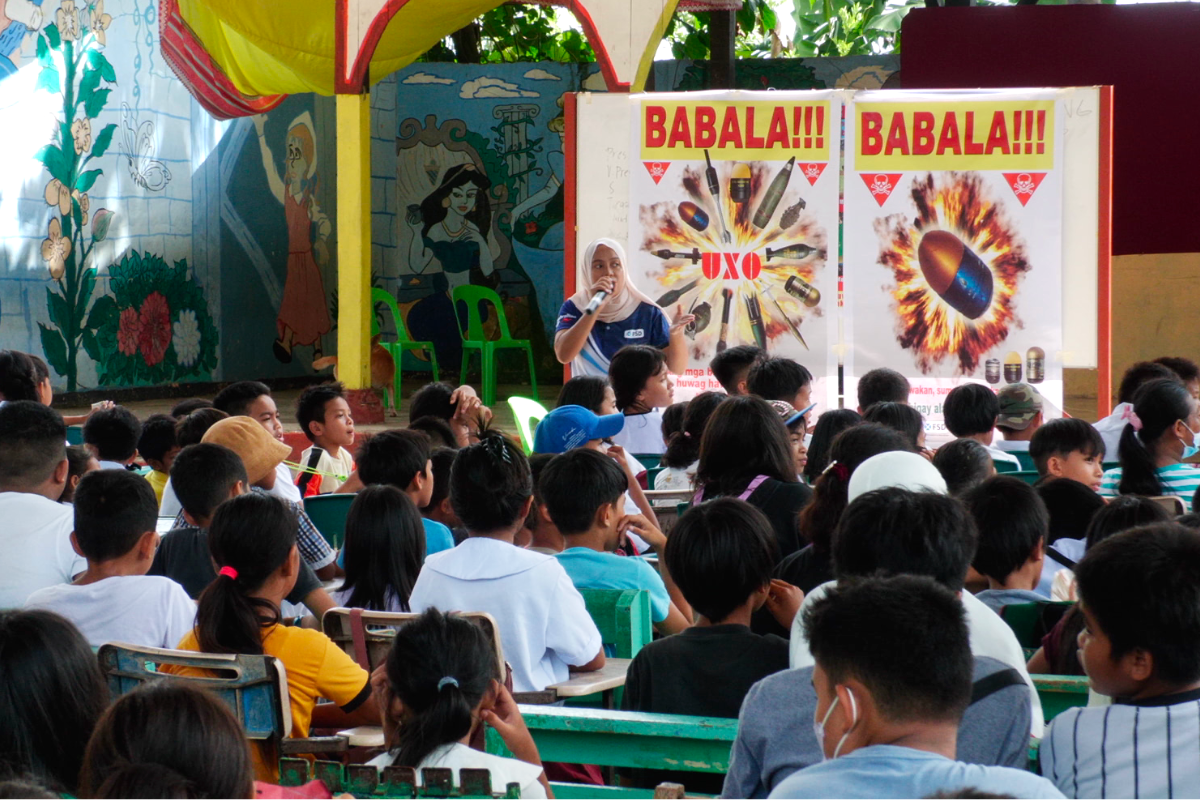
FSD staff member teaching children to recognise dangerous devices and to stay safe when confronted with them. (Philippines, 2023)
Philippines
Context
Mindanao Island, in the south of the Philippines, has known decades of conflicts between different rebel groups and the Philippine government. Each period of conflict has left behind unexploded or abandoned ammunition, putting in danger the lives of the inhabitants of the region.
Following several peace agreements between rebel groups and the government, the region accelerated its pace towards autonomy.
In 2019, after more than 50 years of conflict and following a referendum, the Muslim part of the island of Mindanao gained autonomy and officially became the Bangsamoro Autonomous Region in Muslim Mindanao (BARMM).
The growing issue of improvised explosive devices (IEDs) in the BARMM is a problem of uncleared explosive ordnance, since nearly all recent incidents of IEDs involve items of repurposed unexploded ordnance. These devices are often hidden in high-traffic areas such as schools, roads, and marketplaces, posing a severe danger to civilians.
Most of the victims are children because they don’t know the risks and dangers of the UXO.
Naila Edzra
Non-technical survey team member for FSD

Timeline
FSD in the Philippines
FSD began working in Mindanao in 2005 to support the peace process, providing technical expertise to the Philippine government and the Moro Islamic Liberation Front (MILF).
In 2007, in partnership with the Philippine Campaign to Ban Landmines, FSD proposed establishing a mine action programme to improve security for the people, support reconstruction and build confidence in the peace process. In 2010, the Philippine government and the MILF signed a peace agreement to support the implementation of the project.
In 2012, FSD started mine action activities in Mindanao.
Over the last years, FSD remained committed to foster trust and peace between former adversaries and enhance coordination in mine action operations across the region. In addition, our teams also conducted surveys and implemented risk education programmes to promote awareness and safe behaviour.
FSD’s programme in the Philippines is funded by the Australian Department of Foreign Affairs and Trade, the city of Geneva, and private donors.
Stories
News from the Philippines
LIFE-SAVING INFORMATION
In the southern Philippines, on the island of Mindanao, thousands of people have to live with the constant threat of unexploded ordnance. Children are particularly vulnerable to the dangers of these items. FSD’s teams are doing everything they can to protect them from these risks.
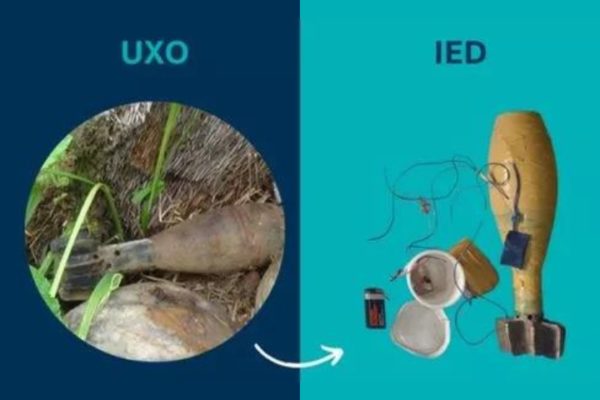
UXO ➡️ IED
In the Philippines, armed groups collect unexploded ordnance (UXO) such as this mortar remnant to make improvised explosive devices (IED). FSD acts as a facilitator between the different parties to prevent this type of practice.
A LONG INVESTIGATION WORK
In 2023, our teams surveyed 250 villages suspected to be contaminated by unexploded ordnance or improvised explosive devices in the Philippines.
newsletter
- News from the field
- Demining videos
- Interviews with experts
- Events
- Job offers
